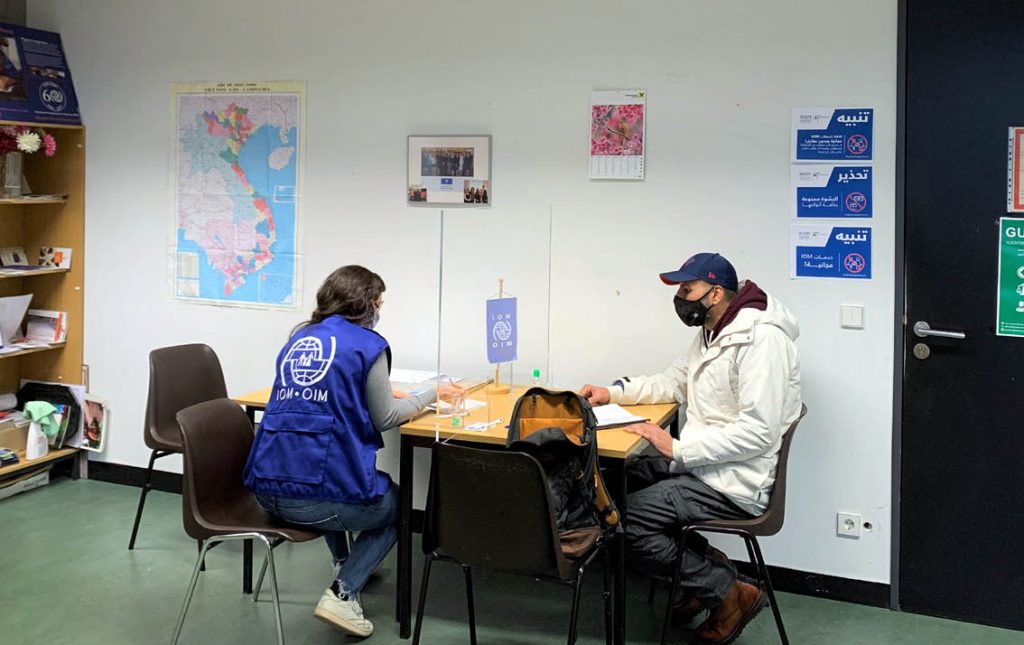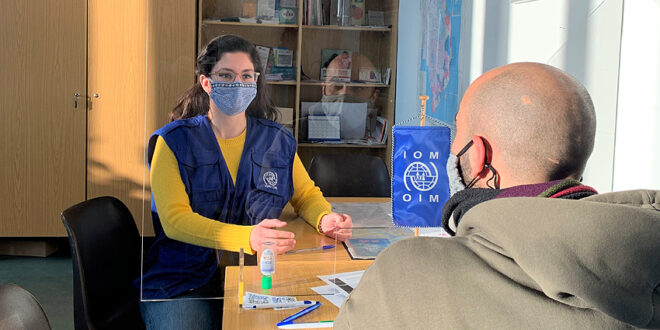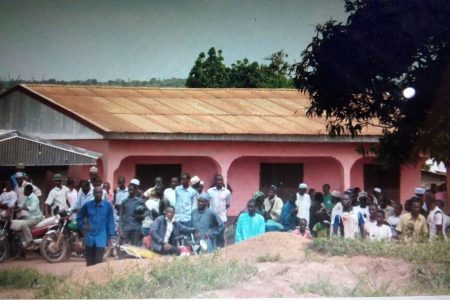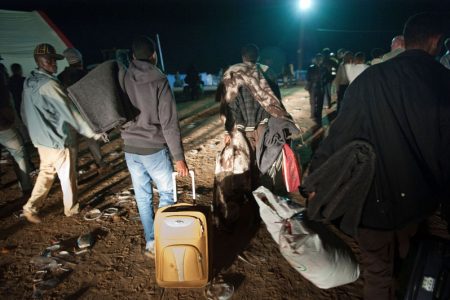How an IOM frontline worker responds to the needs of migrants through return and reintegration counselling
Berlin – It is a full day for Danielle Al-Qassir at the foreign immigration office in Berlin. “I have clients calling me on my work phone, the landline, and we have people coming in in-person,” she says. “Today was very busy but it’s really nice because it’s good to be there for people.”
Danielle is a return counsellor working with the International Organization for Migration (IOM) in Germany. She counsels migrants who are thinking about leaving Germany voluntarily and returning to their country of origin. “The majority of people who come to see me have had their asylum claim rejected for a second time and are looking for support,” she says. “Many tell us that they have been here for several years and did not manage to integrate into society, could not work or find a job.” Others want to return because they need to take care of family members. Additionally, there can be personal, medical or psychological reasons.
In the Berlin area, there are many migrants from Guinea and Nigeria coming for counselling. “It is really amazing how strong those people are. They come to us and say ‘I have been here for some time but, you know, it is not working, I tried so many ways. I prefer to go back home and start a new business.’,” Danielle says. “I think this is so brave.”
Different programmes for different needs
Thankfully, there is an array of programmes for migrants wishing to return. IOM supports voluntary return and reintegration with funding from the Federal Office for Migration and Refugees, the German Government, the Federal States and the European Union (EU). This way, they can get the necessary support to get back on their feet. Most importantly, it is crucial that support does not stop after their return. For this, special reintegration programmes can be tailored to the returnees’ needs in individual reintegration counselling sessions in the country of origin.
In addition, IOM staff in Germany are available to the migrants whenever they need help. “If they go back home, they can still reach us. E-mail works anywhere in the world,” Danielle says.

A return counsellor at the foreign immigration office in Berlin counselling a migrant/Photo: IOM Germany
A return counsellor at the foreign immigration office in Berlin counselling a migrant/Photo: IOM Germany
At the moment, counselling is happening behind plexiglas. It has been a challenging year for Danielle and her IOM colleagues too, as they have received many migrants facing difficult circumstances. Someone from Sudan has been stuck here for two years and with COVID-19, things got even more complicated. “But we are always working towards solutions,” she says.
Many of those visiting Danielle are desperate, and not all need return assistance. “Our priority is that people get the support they ask for. We want to show those who are in need that we are there for them.”
Establishing trust and sharing important information
If people have been through a lot, trusting a return counsellor can be a challenge. “People have different migration experiences. Sometimes they are afraid to ask for help and share what they have been through or give information about themselves. This is why I’m trying to build connections with them in a safe space,” Danielle says.
Return counselling happens anonymously if people wish so. Danielle listens to people’s stories, asks for specific information to see under which programme they can get support, she explains which support possibilities are available and guides them through the steps in the return and reintegration process. Meanwhile, the counsellor establishes a connection with the IOM mission in the country of return. In some countries, IOM has virtual counselling where counsellors advise migrants through Skype, Facebook or Viber and most importantly, in their mother tongue. People have the possibility to speak to someone who knows the situation back home, the labour market, the rent prices, the cost of medication. Gathering as much information as possible before a return is vital for migrants to be able to make an informed decision.
How to get started
So how should people start if they are thinking about returning to their home country? “People should go to the information portal www.ReturningfromGermany.de and enter their German address. In almost every city in Germany there are state authorities and independent actors that offer return counselling. The website is available in ten languages and will show you where to go and who to talk to.” For Danielle, working as a return counsellor, is something like a calling: “I am really happy I can be a frontline worker because we go beyond return counselling. My job means everything to me.”
Learn more
Should you or someone you know think about returning from Germany, the International Organization for Migration (IOM) can support you. You can get in touch with IOM under +49 30 90269 4848. IOM has its own return counselling centres in Berlin, Brandenburg, Bremerhaven and Rhineland-Palatinate. If you live somewhere else in Germany, you can check for your nearest return counselling centre here: www.ReturningfromGermany.de/en/centres.
IOM’s return and reintegration programmes are financed by the Federal Office for Migration and Refugees, the German Government, the Federal States and the EU.


